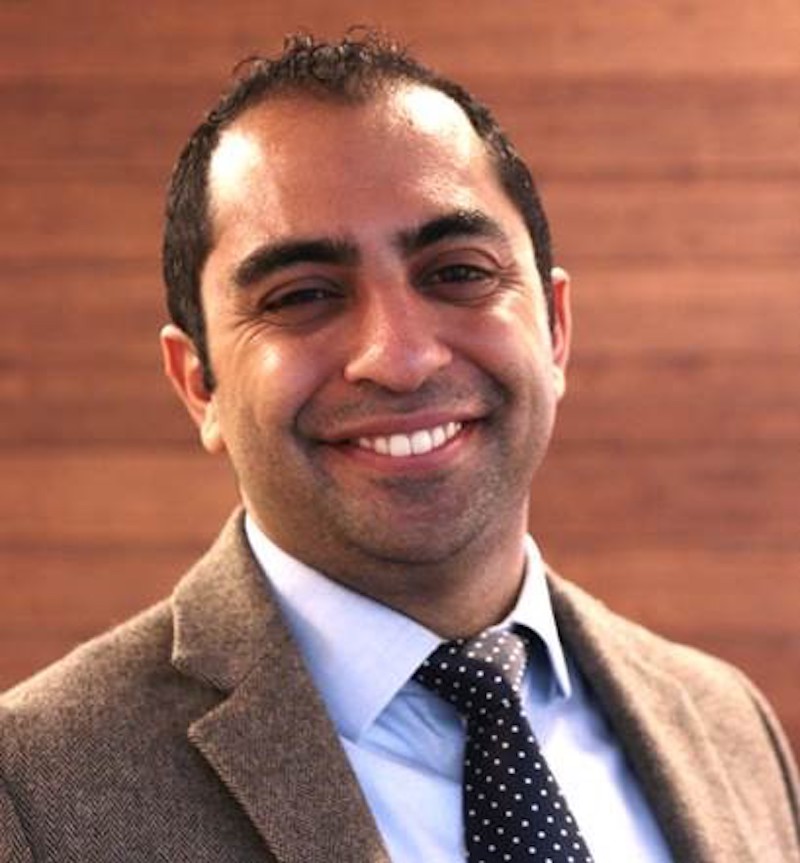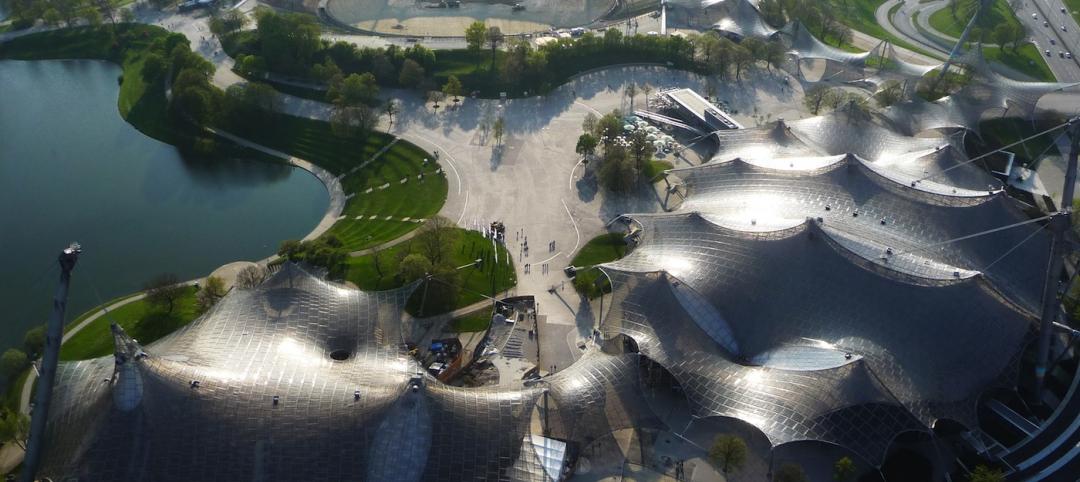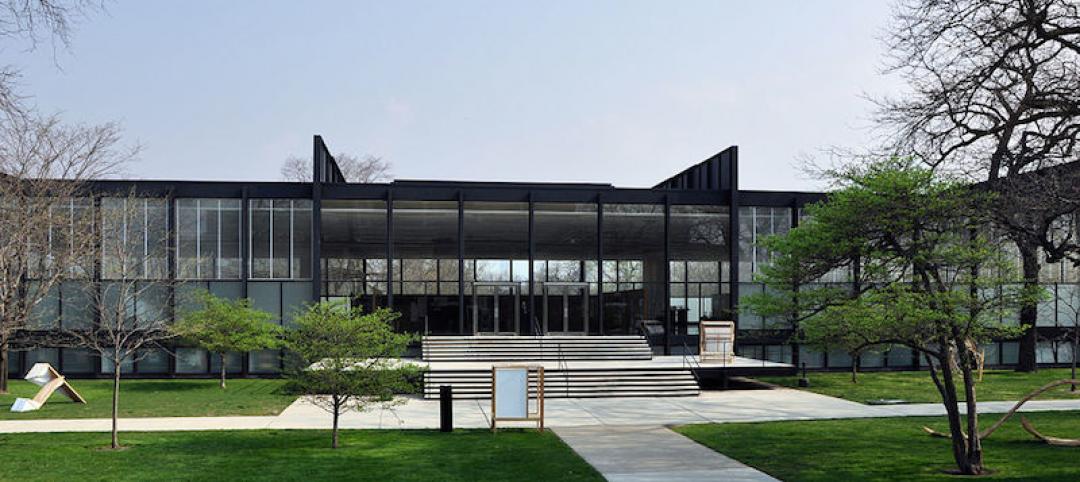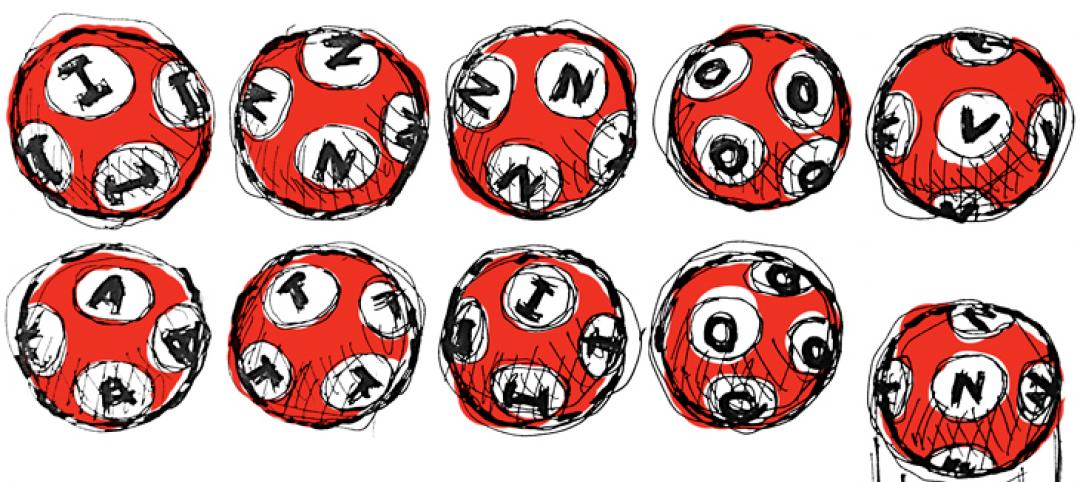HOK, the global design firm whose healthcare practice has planned and designed numerous healthcare facilities, has appointed Andrew M. Ibrahim, a medical doctor whose education included architectural training, as its chief medical officer.
Ibrahim, MD, MSc., is a resident surgeon at the University of Michigan, and serves on AIA’s Design and Health Leadership Group. While at Case Western Reserve University, where he received his undergraduate and medical degrees, Ibrahim took a year of coursework at London’s Bartlett School of Architecture.
He has also received training in healthcare delivery and policy as a Crile Fellow at Princeton University, a Doris Duke Fellow at Johns Hopkins Hospital, and as a Robert Wood Johnson Clinical Scholar at Michigan.
HOK claims to be one of the first AEC firms to hire a chief medical officer. (According to his LinkedIn page, Ibrahim has been HOK’s chief medical officer since February, although the company only released that news yesterday.) “In an era of hospital megamergers and value-based care, Dr. Ibrahim’s expertise in healthcare policy and clinical innovation will be instrumental in helping our teams guide clients through how vertical and horizontal integrations can positively affect patient care,” says Anthony Roesch, AIA, director of HOK’s global Healthcare Consulting group.
Ibrahim will use his expertise in surgery, architecture and clinical care delivery models to collaborate with HOK’s teams of medical planners, designers, and consultants.
“My experience has taught me that everything we build and design—schools, stadiums, airports, skyscrapers—has enormous potential to improve population health and wellness. As such, I deliberately collaborate across a breadth of academic and private sectors,” Ibrahim wrote on the website surgeryredesign.com. where he highlights his academic research and writing.
Related Stories
Sports and Recreational Facilities | Mar 11, 2015
Foster + Partners wins bid for 2022 World Cup centerpiece stadium in Qatar
Norman Foster described the design as “an exciting step forward in stadium design—it will be the first to break the mold of the free-standing suburban concept, and instead anticipates the grid of this future city.”
Architects | Mar 10, 2015
German architect Frei Otto named 2015 Pritzker Architecture Prize laureate
The news comes a day after the visionary architect, 89, died in his native Germany.
Modular Building | Mar 10, 2015
Must see: 57-story modular skyscraper was completed in 19 days
After erecting the mega prefab tower in Changsha, China, modular builder BSB stated, “three floors in a day is China’s new normal.”
Sponsored | Metals | Mar 10, 2015
Metal Building Systems: A Rising Star in the Market
A new report by the Metal Building Manufacturer's Association explains the entity's efforts in refining and extending metal building systems as a construction choice.
Retail Centers | Mar 10, 2015
Retrofit projects give dying malls new purpose
Approximately one-third of the country’s 1,200 enclosed malls are dead or dying. The good news is that a sizable portion of that building stock is being repurposed.
Retail Centers | Mar 10, 2015
Orlando's Skyscraper to be world's tallest roller coaster
The Skyscraper is expected to begin construction later this year, and open in 2016. It will stand at 570 feet.
Museums | Mar 9, 2015
Architecture based on astronomy principles for new planetarium in Shanghai
The ancient Chinese civilization left some of the earliest records of humans studying the stars and skies. To exhibit this long history, a new planetarium and astronomy museum is planned for construction in Shanghai.
Architects | Mar 9, 2015
Study explores why high ceilings are popular
High ceilings give us a sense of freedom, new research finds
Cultural Facilities | Mar 9, 2015
London council nixes plans to rebuild the Crystal Palace
Plans for the new Crystal Palace Park were scrapped when the city and the project's developer could come to an agreement before the 16-month exclusivity contract expired.
Office Buildings | Mar 7, 2015
Chance encounters in workplace design: The winning ticket to the innovation lottery?
The logic behind the push to cultivate chance encounters supposes that innovation is akin to a lottery. But do chance encounters reliably and consistently yield anything of substance?

















